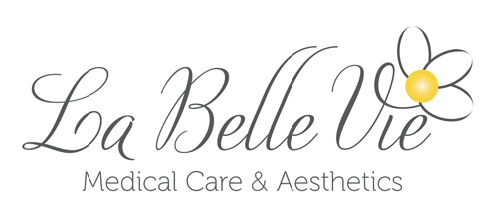What is Estrogen?
Estrogen is a hormone. Although present in the body in small amounts, hormones have big roles in maintaining your health.
Estrogen is commonly associated with the female body. Men also produce estrogen, but women produce it in higher levels.
In adult women Estrogen:
- regulates food intake, body weight, glucose metabolism, and insulin sensitivity
- controls the growth of the uterine lining during the menstrual cycle
- is involved in bone and cholesterol metabolism
What are the symptoms of low estrogen?
Women of all ages can develop low estrogen. Common symptoms of low estrogen include:
- painful sex due to a lack of vaginal lubrication
- an increase in urinary tract infections (UTIs) due to a thinning of the urethra
- fatigue
- depression
- irregular or absent periods
- mood swings
- hot flashes
- breast tenderness
- headaches or accentuation of pre-existing migraines
- trouble concentrating
Estrogen works in conjunction with calcium, vitamin D, and other minerals to keep bones strong. If your estrogen levels are low, you may experience decreased bone density. You may also find that your bones fracture or break more easily. This may be due to a decrease in bone density. If left untreated, low estrogen can lead to infertility in women.
What causes low estrogen?
Estrogen is primarily produced in the ovaries. Anything that affects the ovaries will end up affecting estrogen production.
Young women may experience low levels of estrogen due to:
- excessive exercise
- eating disorders, such as anorexia
- a low-functioning pituitary gland
- premature ovarian failure, which can result from genetic defects, toxins, autoimmune conditions
Low estrogen can be a sign of approaching menopause. This time of transition is called perimenopause.
During perimenopause your ovaries will still produce estrogen. Production will continue to slow until you reach menopause. When you’re no longer producing estrogen in your ovaries, you’ve reached menopause.
Risk Factors for Low Estrogen
The most common risk factors for low estrogen levels include:
- age, since your ovaries produce less estrogen over time
- family history of hormonal issues, such as ovarian cysts
- eating disorders
- extreme dieting
- excessive exercising
- issues with your pituitary gland
How is low estrogen diagnosed?
A diagnosis of low estrogen followed by treatment can prevent many health issues and may help prevent further complications.
During your appointment at La Belle Vie, we will review your family health history, symptoms and perform a physical assessment. Blood tests will be done in order to measure your hormone levels as well as other factors that maybe effecting symptoms such as hypothyroidism.
How is low estrogen treated?
Women who have low levels of estrogen may benefit from hormonal treatment.
Estrogen Therapy
Women between the ages of 25 to 50 who are estrogen deficient are generally prescribed estrogen. This can reduce the risk of bone loss, cardiovascular disease, and other hormonal imbalances.
The actual dose will depend on the severity of the condition and the method of application. Estrogen can be administered several different ways. At La Belle Vie we treat Hormone Replacement Therapy with only BioIdentical Hormones.
- topically
- vaginally
- via pellet placement (widely used in Europe and Australia since 1939).
Estrogen therapy should ease the severity of menopausal symptoms and reduce your risk of fractures.
Hormone replacement therapy (HRT)
HRT includes estrogen, progesterone and testosterone. HRT treatments can be adjusted in dosage, length, and a combination of these hormones. For example, depending on the diagnosis, progesterone is often used in conjunction with estrogen.
Low estrogen levels and weight gain: Is there a connection?
Sex hormones, such as estrogen, influence the amount of fat in the body. Estrogen regulates glucose and lipid metabolism. If your estrogen levels are low, it can result in weight gain.
Research suggests that this may be why women approaching menopause are likely to become overweight. Being overweight can increase your risk of obesity, diabetes, and cardiovascular disease.
If your estrogen levels are low it may be affecting your weight. At La Belle Vie we can assess your symptoms and advise you on the next step. It’s always a good idea to eat a balanced diet and exercise regularly.
Outlook
Hormones, such as estrogen, play a key role in your overall health and wellness. Genetic defects, a family history of hormone imbalances, or certain diseases can cause your estrogen levels to drop.
Low estrogen levels can interfere with sexual functions and overall vitality. They can also increase your risk of obesity, osteoporosis, and cardiovascular disease.
Treatments have evolved over the years and become more effective. Your individual reason for low estrogen will determine your particular treatment, as well as the dosage and duration. Rebecca is a Family Nurse Practitioner who specializes in BioIdentical Hormone Replacement Therapy at La Belle Vie. Schedule your appointment today at 801-987-8384.
Research citations:
https://www.hindawi.com/journals/bmri/2014/757461/
https://www.healthline.com/health/womens-health/low-estrogen-symptoms
https://www.healthline.com/health/womens-health/low-estrogen-symptoms
Mortality toll due to avoiding estrogen therapy in hysterectomized women: estimates for 2002 – 2011. Sarrel PM. Climacteric. 2013 Dec;16(6):718-9. doi: 10.3109/13697137.2013.850194.
Menopausal Hormone Therapy for the Primary Prevention of Chronic Conditions: Systematic Review to Update the 2002 and 2005 U.S. Preventive Services Task Force Recommendations.
Hormone therapy and venous thromboembolism among postmenopausal women: impact of the route of estrogen administration and progestogens: the ESTHER study.
Canonico M1, Oger E, Plu-Bureau G, Conard J, Meyer G, Lévesque H, Trillot N, Barrellier MT, Wahl D, Emmerich J, Scarabin PY; Estrogen and Thromboembolism Risk (ESTHER) Study Group.






